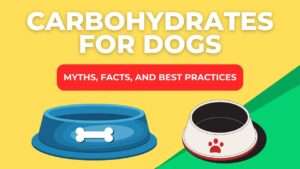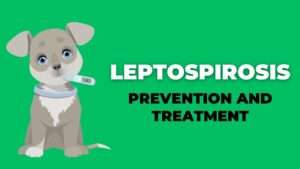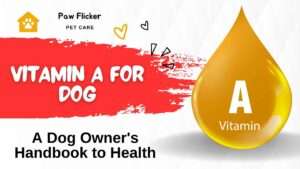In the world of pet nutrition, the question of what dogs can safely consume often arises. Teff, a gluten-free grain gaining popularity for its nutritional benefits, prompts curiosity among pet owners. But can dogs indulge in this ancient grain safely? Let’s delve into the details to uncover the truth.
Contents Overview
Unveiling the Teff Mystery
Teff, scientifically known as Eragrostis tef, hails from Ethiopia and has been a staple food for centuries. It’s prized for its high protein content, rich nutrient profile, and gluten-free nature. But when it comes to sharing our dietary delights with our furry friends, caution is paramount.
Nutritional Content of Teff
Teff, an ancient grain originating from Ethiopia, is a nutritional powerhouse packed with essential nutrients. It’s rich in high-quality protein, dietary fiber, vitamins, and minerals, including iron, calcium, magnesium, zinc, and vitamin B6. Teff’s complex carbohydrates provide sustained energy, making it an ideal choice for active dogs.
Is Teff Safe for Dogs?
Yes, teff is generally safe for dogs. This ancient grain from Ethiopia offers numerous nutritional benefits, including high-quality protein, fiber, vitamins, and minerals. Teff is also gluten-free, making it a safe option for dogs with sensitivities or allergies to wheat. Its complex carbohydrates provide sustained energy, making it suitable for active dogs. However, as with any new food, it’s essential to introduce teff gradually into your dog’s diet and monitor for any adverse reactions. Overall, teff can be a nutritious addition to your dog’s meals, offering a variety of essential nutrients for their overall health and well-being.
Benefits of Teff for Dogs
Teff, a nutritious ancient grain, offers several potential benefits for dogs when incorporated into their diet in moderation:
- Nutritional Density: Despite its small size, teff is dense in nutrients, including protein, fiber, vitamins, and minerals. Adding teff to your dog’s diet can provide additional essential nutrients to support overall health and well-being.
- Digestive Health: The high fiber content in teff can promote digestive health in dogs by aiding in regular bowel movements and preventing constipation. It also supports the growth of beneficial gut bacteria, contributing to a healthy digestive system.
- Gluten-Free Option: Teff is naturally gluten-free, making it a safe alternative for dogs with gluten sensitivities or allergies. It can be included in their diet without the risk of triggering adverse reactions commonly associated with gluten-containing grains.
- Weight Management: Teff’s complex carbohydrates provide sustained energy without causing rapid spikes in blood sugar levels. This can help dogs feel fuller for longer periods, potentially aiding in weight management and preventing obesity-related health issues.
- Muscle Health: The protein content in teff supports muscle development and maintenance in dogs. It provides essential amino acids necessary for muscle repair, making it beneficial for active or working dogs with higher protein requirements.
- Joint Support: Teff contains minerals like calcium and magnesium, which are crucial for maintaining healthy bones and joints in dogs. Including teff in their diet may help support joint health and reduce the risk of skeletal issues, especially in senior or large breed dogs.
- Antioxidant Properties: Teff contains antioxidants that help neutralize harmful free radicals in the body, reducing inflammation and oxidative stress. This can benefit dogs by supporting overall immune function and reducing the risk of chronic diseases.
- Varied Diet Options: Introducing teff into your dog’s diet adds variety and diversity to their meals, preventing dietary monotony and potentially reducing the risk of food sensitivities or intolerances.
- Improved Skin and Coat: The nutrients found in teff, such as omega-3 fatty acids, vitamin E, and biotin, contribute to healthy skin and a shiny coat in dogs. Regular consumption of teff may help alleviate skin issues like dryness, itchiness, or dull coat.
- Potential Allergy Management: For dogs with known allergies to common grains like wheat or corn, incorporating teff into their diet can provide a hypoallergenic alternative while still offering valuable nutrients.
Incorporating teff into your dog’s diet can provide a range of health benefits, but it’s essential to do so in moderation and monitor your dog’s response. Always consult with a veterinarian before making significant dietary changes or introducing new foods to ensure they align with your dog’s individual nutritional needs and health status.
Potential Risks and Considerations
While teff offers several potential benefits for dogs, it’s essential to consider some potential risks and factors before incorporating it into their diet:
- Digestive Sensitivity: Some dogs may have difficulty digesting grains, including teff, leading to gastrointestinal upset, such as diarrhea, gas, or bloating. Monitor your dog’s digestive response when introducing teff and adjust the portion size accordingly.
- Allergic Reactions: Although teff is gluten-free, dogs can still be allergic or sensitive to other components in the grain. Signs of allergic reactions may include itching, redness, swelling, or gastrointestinal disturbances. If your dog exhibits any allergic symptoms, discontinue feeding teff and consult with a veterinarian.
- Caloric Density: While teff is nutrient-dense, it’s also calorie-dense. Excessive consumption of teff or other grains can contribute to weight gain, particularly in sedentary or less active dogs. Ensure that teff is fed in moderation and accounted for in your dog’s overall calorie intake to prevent obesity.
- Phosphorus Content: Teff contains moderate levels of phosphorus, which is essential for bone health but can be problematic for dogs with kidney issues. Dogs with kidney disease may need to limit phosphorus intake, so consult with your veterinarian before adding teff to their diet.
- Balanced Diet: Teff should not replace essential components of a balanced canine diet, such as high-quality animal proteins and fats. Dogs require a variety of nutrients to thrive, so teff should complement, not substitute, their primary food sources.
- Portion Control: Introduce teff gradually into your dog’s diet and monitor their response. Start with small amounts to assess tolerance before increasing the portion size. Too much teff or sudden dietary changes can upset your dog’s digestive system.
- Individual Variability: Every dog is unique, with individual nutritional requirements and sensitivities. What works well for one dog may not suit another. Pay attention to your dog’s response to teff and consult with your veterinarian if you have any concerns.
- Preparation and Serving: Ensure that teff is properly cooked before serving it to your dog. Raw or undercooked grains can be difficult to digest and may pose a risk of gastrointestinal issues or bacterial contamination.
- Interactions with Medications: If your dog is on any medications or has underlying health conditions, consult with your veterinarian before introducing teff into their diet. Certain medications or health issues may interact with dietary changes, so it’s essential to seek professional guidance.
- Quality and Sourcing: Choose high-quality, organic teff grains for your dog to minimize the risk of contaminants or pesticides. Avoid products containing additives, preservatives, or artificial ingredients that may be harmful to your dog’s health.
By considering these potential risks and factors, you can make informed decisions about whether teff is suitable for your dog and how to incorporate it safely into their diet. Always prioritize your dog’s health and well-being, and consult with a veterinarian if you have any questions or concerns.
Incorporating Teff Into Your Dog's Diet
Teff can be a nutritious addition to your dog’s diet when introduced gradually and in moderation. Here are some tips on how to incorporate teff into your dog’s meals:
- Start Slowly: Introduce teff gradually into your dog’s diet to allow their digestive system to adjust. Begin with small amounts and monitor your dog’s response for any signs of digestive upset or allergic reactions.
- Cook Thoroughly: Ensure that teff is properly cooked before serving it to your dog. Boil or steam teff grains until they are soft and fully cooked to improve digestibility and make it easier for your dog to consume.
- Mix with Regular Food: Mix cooked teff grains with your dog’s regular food to introduce it gradually and make it more palatable. Start with a small portion mixed in with their usual meal and gradually increase the amount over time.
- Homemade Treats: Use cooked teff grains to make homemade dog treats. You can mix cooked teff with other dog-friendly ingredients like lean meats, vegetables, or fruits to create nutritious and tasty snacks for your dog.
- Topper for Kibble: Sprinkle cooked teff grains as a topper over your dog’s dry kibble to add texture, flavor, and nutritional value to their meal. This can entice picky eaters and encourage them to eat their regular food.
- Teff Flour in Baking: Use teff flour as an alternative to wheat flour in homemade dog treats or baked goods. Teff flour can add nutrients and a nutty flavor to treats like biscuits, muffins, or homemade dog cakes.
- Vegetable Stew: Cook teff grains and mix them with a vegetable stew or broth for a nutritious and filling meal option for your dog. You can include dog-friendly vegetables like carrots, peas, sweet potatoes, and green beans for added flavor and nutrients.
- Consult with a Veterinarian: Before making any significant changes to your dog’s diet or introducing new foods like teff, consult with your veterinarian. They can provide personalized recommendations based on your dog’s age, size, health status, and dietary needs.
By incorporating teff into your dog’s diet safely and gradually, you can provide them with a variety of nutrients and potential health benefits. Pay attention to your dog’s response and adjust the portion size as needed to ensure they thrive on their new dietary addition.
When to Avoid Feeding Teff to Your Dog
While teff can be a nutritious addition to many dogs’ diets, there are certain situations when it’s best to avoid feeding teff to your dog:
- Allergic Reactions: If your dog has a known allergy or sensitivity to grains, it’s best to avoid feeding them teff. Signs of allergic reactions may include itching, redness, swelling, or gastrointestinal disturbances. Consult with your veterinarian for alternative dietary options.
- Digestive Sensitivity: Some dogs may have difficulty digesting grains, including teff, leading to gastrointestinal upset such as diarrhea, gas, or bloating. If your dog experiences digestive issues after consuming teff, discontinue feeding it and consult with your veterinarian.
- Kidney Disease: Dogs with kidney disease may need to limit their phosphorus intake, as high levels of phosphorus can exacerbate kidney issues. Teff contains moderate levels of phosphorus, so it’s important to consult with your veterinarian before feeding it to dogs with kidney disease.
- Obesity or Weight Management: While teff can be a nutritious addition to a dog’s diet, it’s calorie-dense and can contribute to weight gain if fed in excessive amounts. If your dog is overweight or needs to manage their weight, consult with your veterinarian to determine the appropriate portion size and dietary adjustments.
- High Grain Sensitivity: Some dogs may have a heightened sensitivity to grains in general, regardless of whether they are gluten-free. In such cases, it may be best to avoid feeding teff altogether and opt for grain-free or alternative protein sources.
- Recent Dietary Changes: If your dog has recently undergone a dietary change or is transitioning to a new food, it’s best to avoid introducing additional new ingredients like teff until they have adjusted to their new diet. This can help prevent digestive upset and make it easier to identify any potential dietary sensitivities.
- Underlying Health Conditions: Dogs with certain underlying health conditions or on specific medications may need to avoid certain foods, including teff, due to potential interactions or adverse effects. Always consult with your veterinarian before making any significant changes to your dog’s diet, especially if they have existing health concerns.
- Puppy Feeding: While teff is generally safe for adult dogs, puppies have specific nutritional requirements for growth and development. It’s best to consult with your veterinarian before introducing teff to a puppy’s diet to ensure it meets their needs and is appropriate for their age and stage of development.
By being mindful of these situations and consulting with your veterinarian when necessary, you can make informed decisions about whether teff is suitable for your dog and how to incorporate it safely into their diet.
Bottom Line
In conclusion, teff can be a nutritious addition to your dog’s diet when introduced cautiously and in moderation. Its rich protein and nutrient content offer numerous health benefits, but it’s essential to consider your dog’s individual needs and sensitivities. As always, consulting with your veterinarian before making any dietary changes is paramount to ensure your furry friend’s well-being. So, next time you’re whipping up a batch of teff porridge for yourself, don’t hesitate to share a small portion with your canine companion, keeping their health and happiness in mind.




































+ There are no comments
Add yours